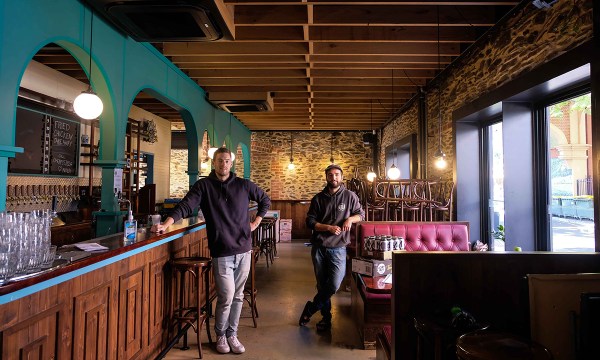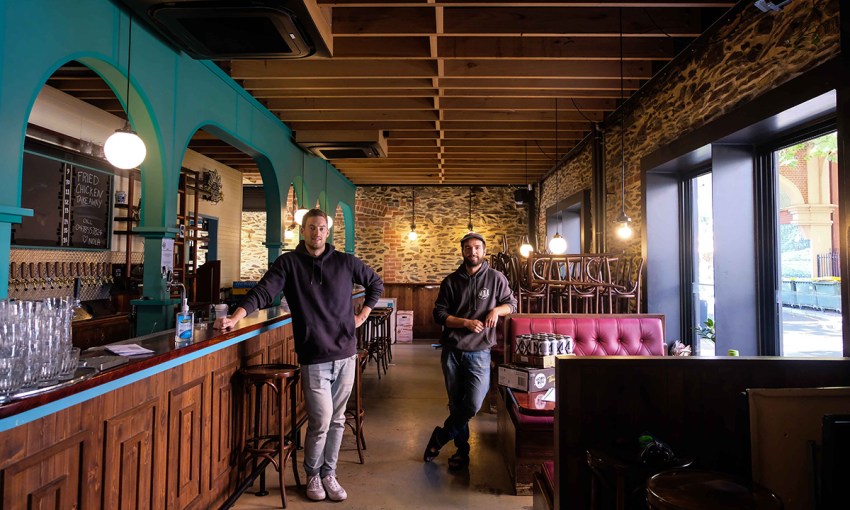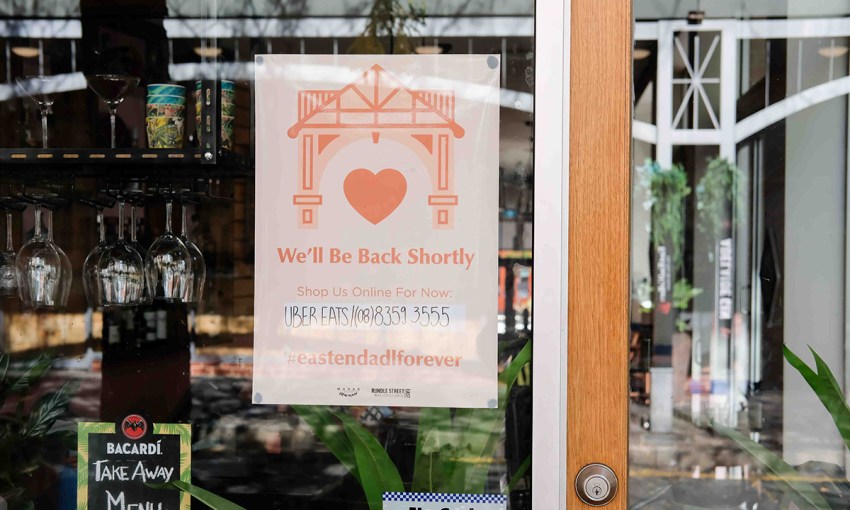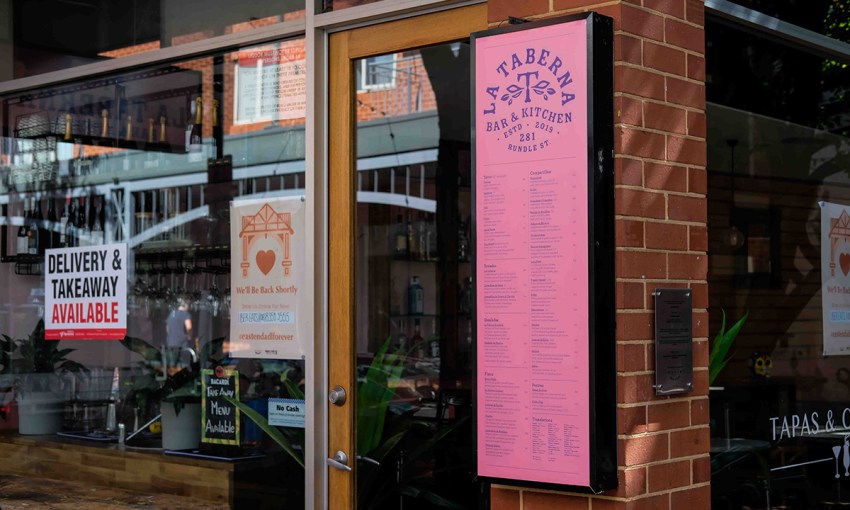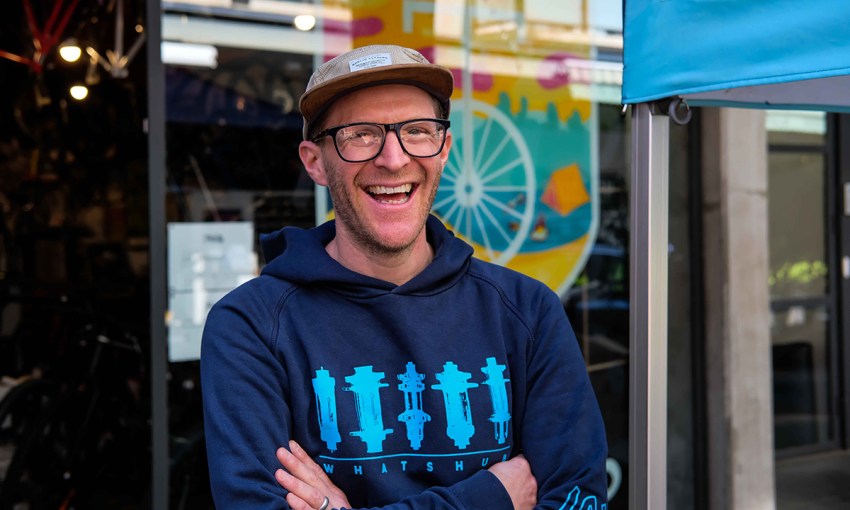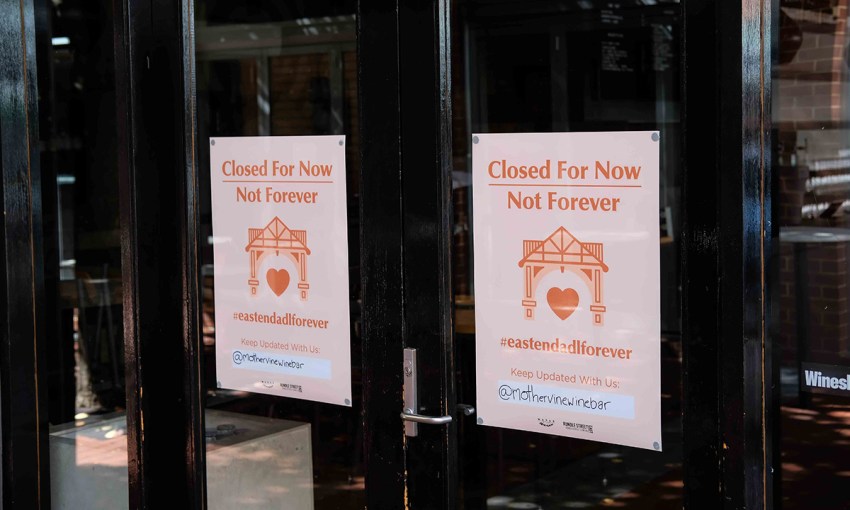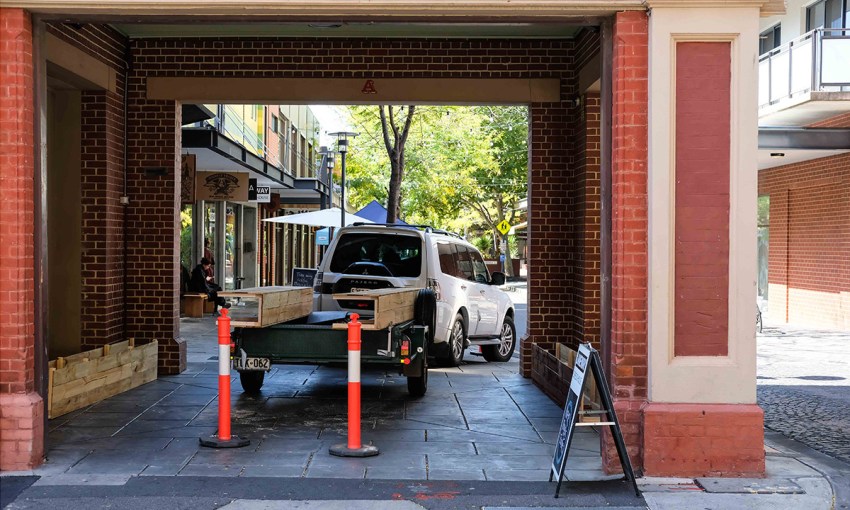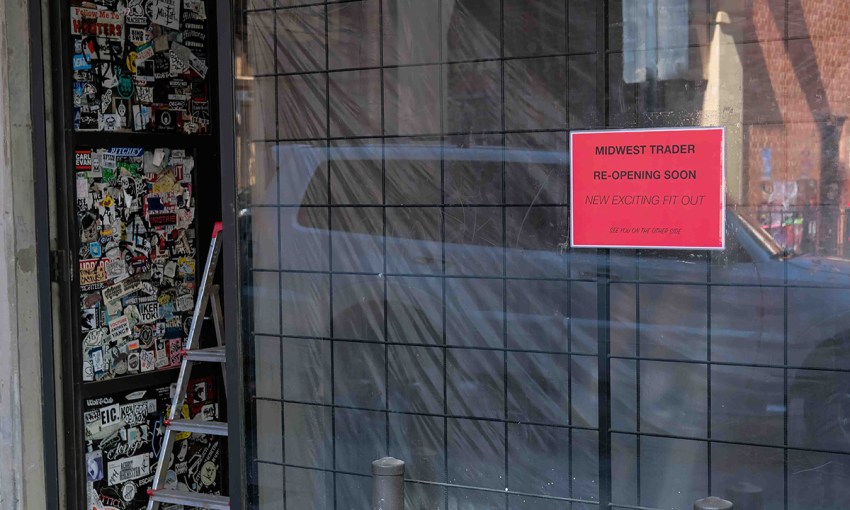Ebenezer Place and Vardon Avenue are shadows of their former selves, but the individuals behind each shopfront say they’ve never felt stronger as a community.
East End traders’ community response is a model for precincts across Adelaide
SPECIAL REPORT: COVID-19 ADELAIDE
A true neighbourhood, the city block between Union Street and East Terrace in the city’s East End is pulling together as vast swathes of Adelaide city streets shut down.
The bizarro world version of our city that sees pubs like the Crown & Anchor with papered over windows with a sign that says ‘no liquor or cash kept on premises’ and without its perennial motley crew of customers sipping Coopers out the front is enough to make you pinch yourself.
Rundle Street East traders are online in various guises. Check their website to find out how you can still shop your favourite stores, bars and restaurants.
It would be ideal to wake up from the COVID-19 situation and find our world of close-proximity socialising back in full effect, but in the meantime we’ve discovered the alternative form of a ‘group hug’ in our city.
We first got this hug when speaking to one of the traders on Ebenezer Place, a small side street that runs parallel to Rundle Street on its southern side.
The longest serving trader on the street
“I’m super sentimental about the East End,” says Kate Tomkins of Midwest Trader.
“This is definitely the hardest thing we’ve been through. I’ve never seen anything like this.”
Kate and her husband Jad have been in business in Adelaide’s East End for 28 years. They first opened Midwest Trader in 1992 on Bent Street, behind the Austral, before moving into the redeveloped Ebenezer Place.
She says COVID-19 and the ensuing restrictions on human movement and interaction has been a real shock, but the fallout has been unexpected.
“It’s been amazing. I speak with my neighbours every single day now, because, well, because there’s no customers,” says Kate.
“Here on Ebenezer we’ve seen whole families grow up. We’ve known the Capoccia family for 30 years – back when they used to run Amalfi – and so we have this family feeling here that makes the whole area pull together even tighter.
“I’m inspired as of today,” says Kate continuing.
“We’ve just gutted our shop and are currently rebuilding it as an authentic-looking log cabin. I’m inspired to see our new vision come to life and be stronger coming out the other side of COVID-19.”
More than just sharing a coffee at a healthy physical distance with her neighbours, Kate is getting help from Naomi Murrell, the designer who’s kept a shop across from Midwest Trader on Ebenezer Place for the past five years, to build an eCommerce platform for her store on shopify.
“Naomi is so great, so patient,” says Kate. “We are doing it all via video calls, and of course I’ve tried eCommerce before with my store but when you’re dealing in one-off vintage pieces the notion of photographing and cataloguing everything always made the idea of trading online impossible.
“I guess now I’ve got time to photograph and catalogue everything,” says Kate with a laugh.
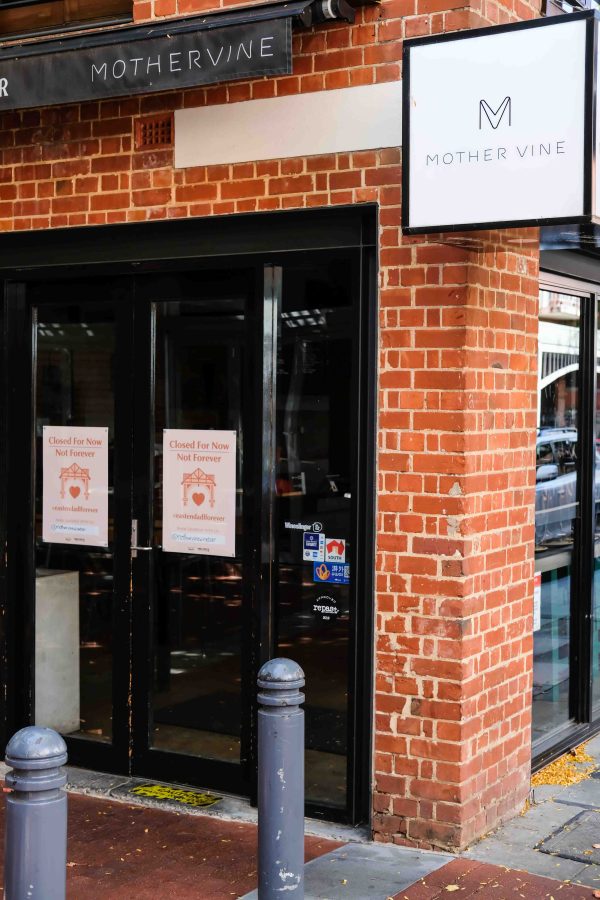
Mothervine on Vardon Avenue is closed – but not forever.
Closed but not forgotten
“It’s so great to see Naomi helping Kate,” says Amelia Moritz of ReLove – just a couple of doors down from Midwest Trader.
“The East End Coordination Group made that happen. They’re actually funding Naomi to set up a shopify website for Kate – that’s what this neighbourhood is all about,” says Amelia.
Amelia has closed her store on Ebenezer Place due to the restrictions, but also because of the numerous zero-dollar days she was doing when the pandemic really took hold.
“March feels like the longest month of my life,” says Amelia, recounting a huge close of Fringe season and then the almost immediate wall she and her fellow traders smashed into with COVID-19.
But she’s optimistic about her future. She’s still coming in every day to get a coffee from Delicia and to check in on her neighbours.
“It’s the best community. We’ve always been close, but now it’s almost like a Ramsey Street situation,” says Amelia, referencing the long-running TV soap opera Neighbours.
Time to dig in and change the narrative
One of the key landlords in the precinct is Steve Maras, a man who’s vision for the East End built Rundle Street East as the fashion centre of Adelaide, while simultaneously giving the start-up brands and businesses a toe hold in city trade on Vardon Avenue and Ebenezer Place.
Steve is the CEO and managing director of Maras Group and has ridden the full spectrum of emotions that have come with COVID-19.
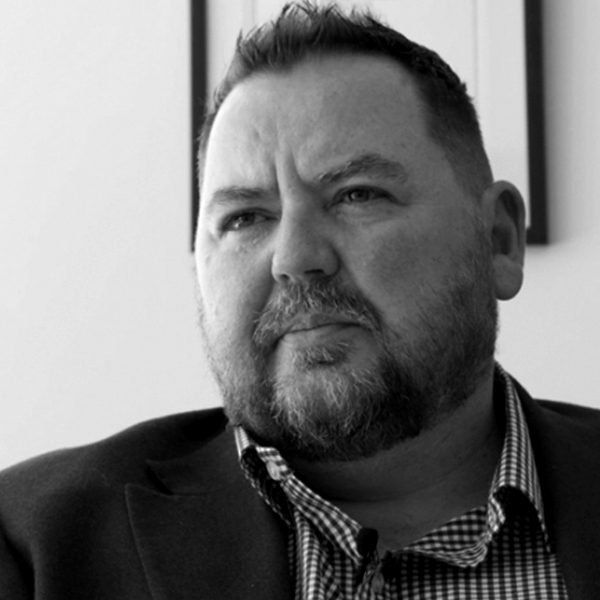
Maras Group CEO and Managing Director, Steve Maras
Steve answers our call on hands-free from his car. It’s 8:30 in the morning and he’s driving west along North Terrace.
“There’s no traffic,” he says. “You would see more traffic on this street on a Sunday morning normally. This is a beast of a thing.”
Maras Group own the properties on Rundle Street east of Union Street down to East Terrace. This also means they own and operate the properties along the north side of Ebenezer Place and Vardon Avenue.
More than work, Steve’s reputation is staked on this part of town that he – along with father Theo – developed from a literal rubbish dump and the old fruit and veg produce markets into arguably the most cosmopolitan corner of our city.
“This isn’t just the East End of Adelaide or South Australia – everywhere, around the world you’re seeing this doom and gloom,” says Steve.
“But that’s not me. I’m remaining extremely positive and forward thinking.”
Steve praises his team at Maras Group, who he says have worked extremely hard under enormous pressure to get “two important things happening,” he says.
Steve has a “business relief team” who are tracing every stimulus and relief package announced by the federal and state governments to compile, discern and disseminate information to his tenants on the financial aid that is available to them.
“I’ve had really strong feedback from tenants that this helps because they find these announcements a minefield,” says Steve.
The second thing Steve is focused on right now is a marketing campaign. Yes, Maras Group are marketing right now.
On several shop windows along Vardon Avenue we find posters that say “Closed for now. Not forever” and “We’ll be back shortly”.
“We need to bring some positivity back to our streetscapes,” says Steve. “Let’s turn this around – like every crisis, we’ll be back. And if I can encourage other landlords with this campaign, if we start to see signs like this all over the city, then we have a chance of changing the narrative right now.”
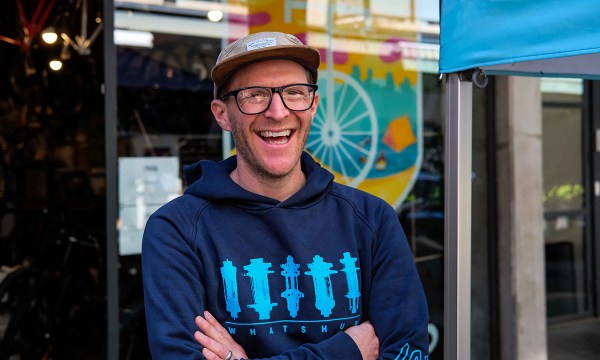
Owner of Treadly Bike Shop – Sam Neeft says he’s feeling positive and it looks like his business will get through this tough period
One Maras tenant who was positive from the get-go is the team behind NOLA, Yiasou George and The Stag Public House.
We spoke to Oliver Brown and Josh Talbot of the Big Easy Group just as the COVID-19 shutdown was kicking off and learnt about all the means by which their company was going to keep trading.
Two weeks later and the innovative hospitality company has settled into their new world reality.
“We’ve got a ping pong table, bean bags and our dogs at work,” says Oliver. “We’re a legit tech company now,” he laughs.
Kidding aside, the pivot hospitality businesses have made during this time to embrace new platforms like Bopple and Restaurant Runner, which allow food businesses to take orders online but use their own staff as drivers, has given many hope to come back and re-open.
What interests Oliver most about the ‘technification’ of an ostensibly human business like hospitality though is the trend among consumers to support local during this time.
“I think this is going to be a trend that carries through,” says Oliver.
“Before, everyone used Uber and didn’t think anything of it and venues would take that hit of 30 per cent on their revenue that Uber takes, but COVID has reminded people of the effects of globalisation and so we’re seeing this localisation take hold and operators like us building and launching our own apps.”
And the social side has remained too, albeit via social media and phone calls.
“There’s been a huge amount of people reaching out and checking in,” says Oliver. “There’s this huge sentiment that we’re all in it together and I just know that we – as a business – are looking forwards now.”
